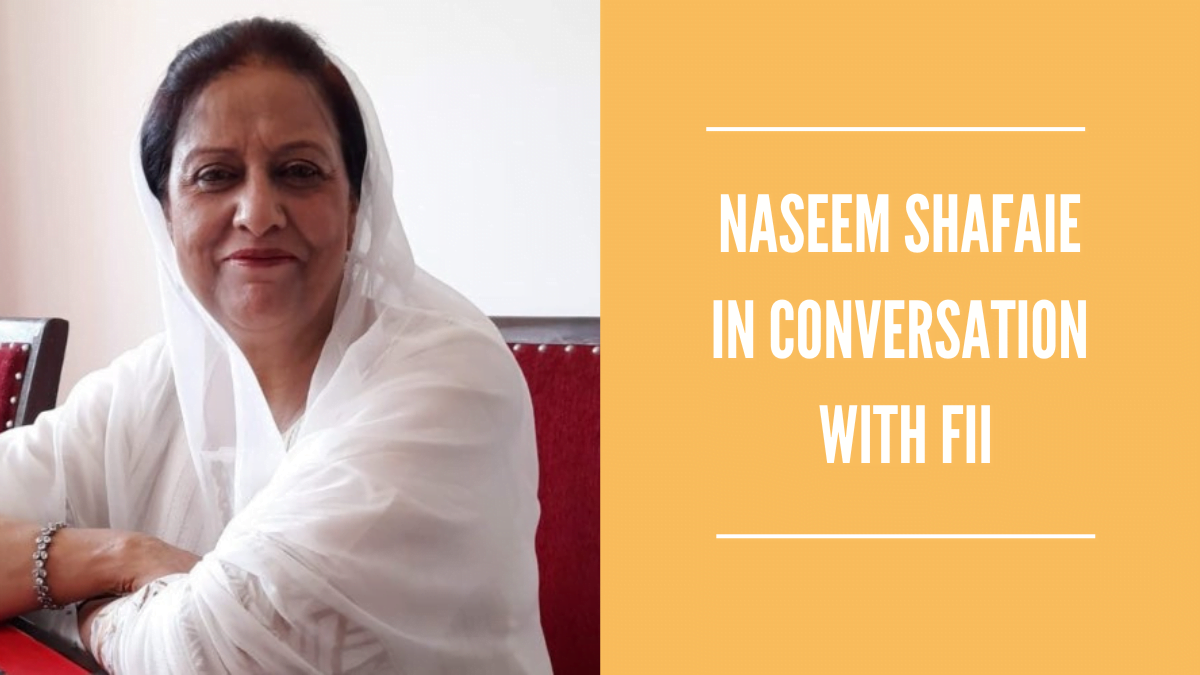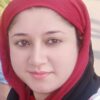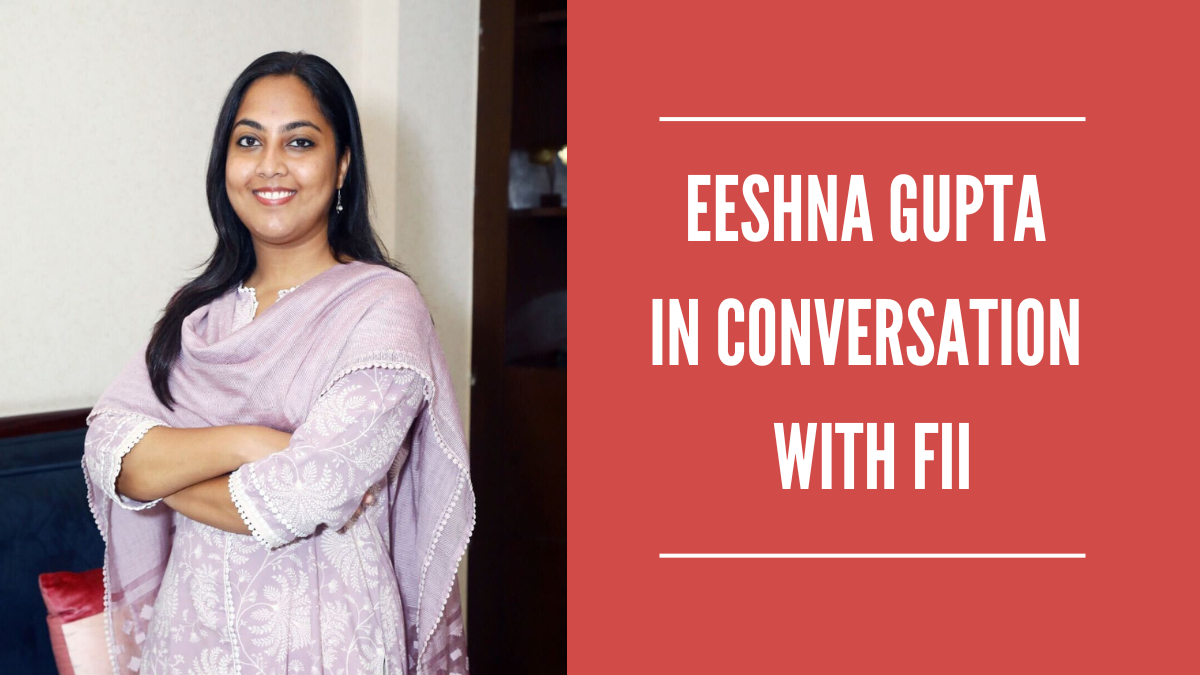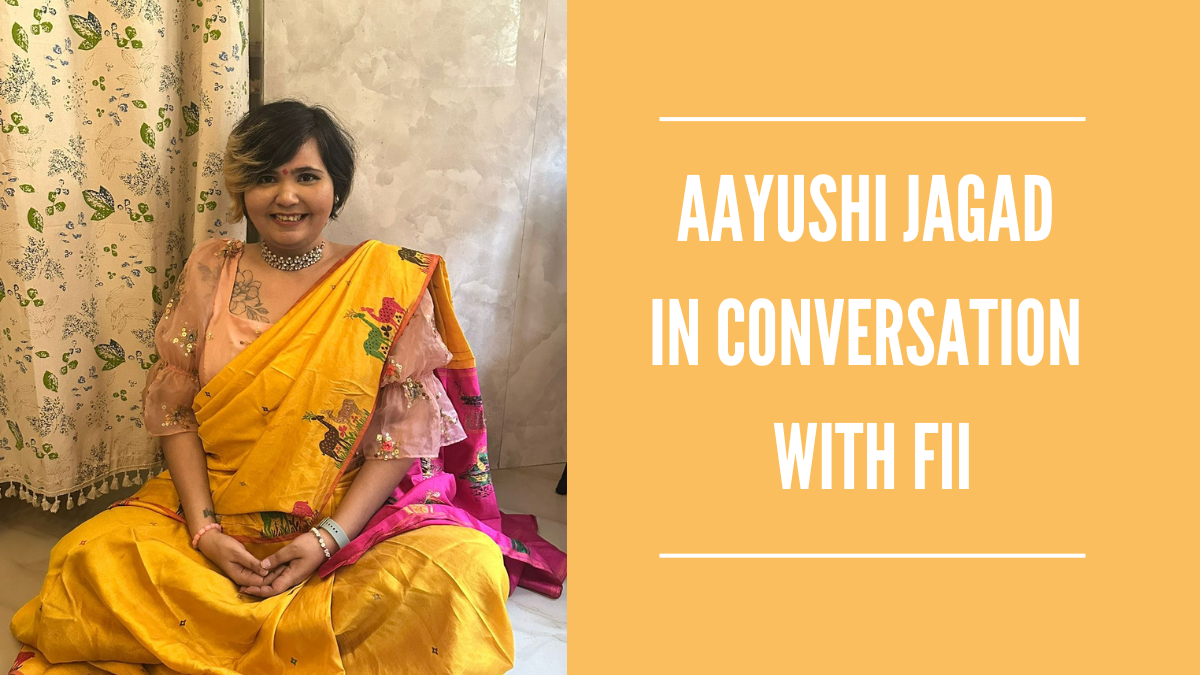Naseem Shafaie is an esteemed poet in the Kashmiri language who has made substantial contributions to the field of Kashmiri literature. Born in Srinagar, Kashmir, she is widely recognised as a trailblazer in the realm of Kashmiri women’s poetry, being the first to venture into the realm of poetry in the Kashmiri language.
Shafaie has released two poetry collections: Derche Machrith (Open Windows) in 1999 and Na Thsay Na Aks (Neither Shadow Nor Reflection) in 2009. In 2011, her second collection Na Thsay Na Aks was awarded the prestigious Sahitya Akademi Award for Kashmiri. This remarkable achievement made her the first Kashmiri woman to be honoured with this award. The collection was also one of the eight winners of the inaugural Tagore Literature Award in 2009. Her poetry delves into the tumultuous atmosphere of Kashmir through the lens of women, touching on themes of suffering, loss, and gloom that they endure during the conflict. Her work has been translated into multiple languages, such as English, Urdu, Kannada, Tamil, Marathi, and Telugu. Her poetry serves as a powerful voice in expressing the pain and resilience of the Kashmiri people during the ongoing conflict.
In an interview with FII, Shafaie discusses her literary journey and her ability to capture the struggles of Kashmiri women in her poetry.
FII: Could you tell us about your background and upbringing in Kashmir and what prompted you to begin writing poetry, particularly on topics that are associated with the sufferings of Kashmiri women?
Naseem Shafaie: Education was always the top priority for girls in my family. My father had a successful career in the medical field. My mother may not have had a formal education, but she placed a strong emphasis on academics and had high aspirations for us. She refused to let us participate in any household tasks. On the contrary, she motivated us to fully dedicate ourselves to our studies.
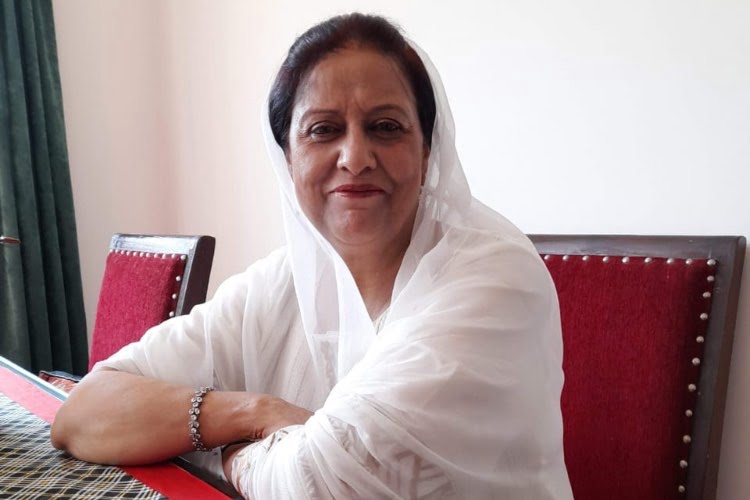
During my early years, English was not included in the curriculum until the 5th grade. I was fortunate enough to have received my early English education at home, thanks to my father. Despite his desire for me to pursue a career in medicine, fate had different intentions for me.
My mother placed a strong emphasis on the importance of having neat handwriting. She provided us with slates to help us practice and enhance our handwriting skills. I missed the first and second classes. I had the privilege of being enrolled in 3rd grade at Kashyappa School, where I completed my matriculation. I found myself unable to connect with subjects like Physics, Chemistry, and Mathematics. I found Mathematics to be quite challenging. I skipped Mathematics during my initial attempt at matriculation.
As I sat at the desk, a Chemistry book lay open in front of me. However, hidden beneath its pages, I indulged in the verses of Kulyaat-e-Iqbal. While studying Physics, I would discreetly indulge in reading Diwan-e-Ghalib. This is why when I watched Taare Zameen Par, I felt a strong connection to the character Ishaan Avaasthi.
FII: What do you consider to be the most important subjects in your poetry, and how do these themes reflect the realities that Kashmiri women have been through?
Naseem Shafaie: During my extensive travels in the subcontinent, I observed that the situation of Kashmiri women was comparatively much better than that of other women in the region. In past, Kashmiri women held significant power within their households and contributed equally to agricultural work alongside the men in their families. Purdah was not enforced with strictness. Earlier in Kashmir, women were not subjected to discrimination or demeaning treatment. It is unfortunate to see that crimes against women have reached alarming levels nowadays. This is completely unacceptable. It is important to recognise that women should be treated with the same respect and equality as men. It is crucial to address these pressing issues and ensure they are emphasised through creative writing like poetry. If these issues aren’t addressed now, then when will they ever be given the attention they deserve? Now is the perfect moment to highlight them and encourage contemplation.
In another poem, featured in Na Tchaye, Na Aks, I delve into the desires of women, exploring their yearning for love, affection, and care. They desire to be treated with equality, not as mere others or as distinct entities by men.
Naseem Shafaie
Throughout the past four decades, women have endured the far-reaching repercussions of the conflict. In today’s society, women have become increasingly empowered, yet their desire for love and respect remains unchanged. During our time, there was indeed gender discrimination, but the crimes committed against women were not as horrifying as they are today, such as the brutal act of killing girl children.
In my poem, Me Tog Na Zanun, I shed light on the challenges faced by women as they embark on a new journey after marriage, having to adapt and learn in an unfamiliar environment. There is an increasing expectation for women to be financially independent, a requirement that was not as prevalent in the past. In my writings, I have extensively covered various issues. I strongly believe in advocating for gender equality and ensuring that women are treated with the same respect and opportunities as men.
In another poem, featured in Na Tchaye, Na Aks, I delve into the desires of women, exploring their yearning for love, affection, and care. They desire to be treated with equality, not as mere others or as distinct entities by men.
Women were created with a purpose. Who do men think they are to belittle and diminish others? While it is true that women often face discrimination from men, I believe that it is not productive to harbour hatred towards men in the context of feminism. Men and women need to collaborate and work together. It is important to recognise that women today are increasingly aware of their identity and the need for space.
Kashmiri women patiently wait outside jails and police stations, clutching pictures of their missing loved ones in their hands, as they actively participate in protests. In my poem titled Tsandav I explore the issue of disappered persons, but I refrain from assigning blame to any specific individual as the perpetrator.
Naseem Shafaie
Despite the existence of government policies and support, women still have not achieved genuine equality. In the past, women faced challenges from the moment they entered the world. Unfortunately, the birth of female babies is being tragically prevented, resulting in a significant loss of life. I brought attention to this matter in Mehjooras Kun.
In my perspective, feminism does not revolve around harbouring animosity or engaging in conflict with men. I firmly believe that men play a crucial role in the overall balance and fulfilment of life. Not considering men would result in neglecting important relationships in one’s life.
FII: In what ways do you believe the conflict and patriarchy intersect to create a double burden for Kashmiri women? Have you used your poetry to address issues like rape, molestation, extrajudicial killings, and enforced disappearances?
Naseem Shafaie: One of the key factors that shape a poet or creative writer’s work is their immediate environment. I have had the opportunity to witness the transformation of Kashmiri women before and after the conflict. The poem’s subject is influenced by society, but the poet’s unique perspective shapes its treatment. In my poems, I strive to portray an authentic reflection of society’s reality. Yes, it is quite a challenging situation.
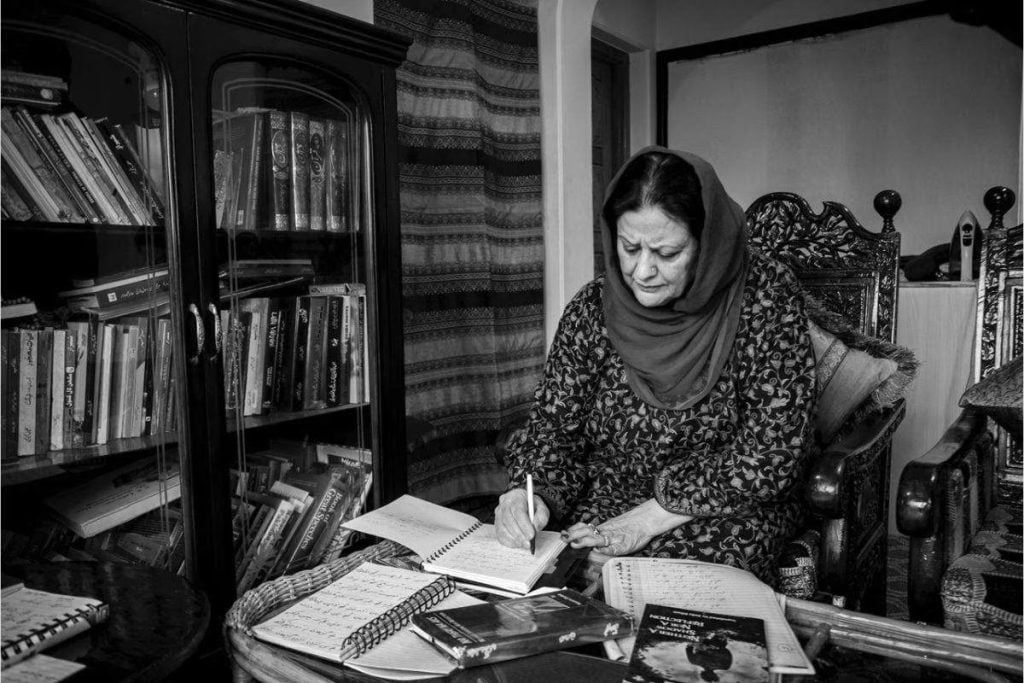
Kashmiri women patiently wait outside jails and police stations, clutching pictures of their missing loved ones in their hands, as they actively participate in protests. In my poem titled Tsandav I explore the issue of disappeared persons, but I refrain from assigning blame to any specific individual as the perpetrator. In my poems, I also explore sensitive topics such as rape, molestation, and extrajudicial killings.
FII: Because you are a female poet living in a place that is profoundly patriarchal and fraught with conflict, what kinds of obstacles or opposition have you encountered? What approaches do you use to deal with them?
Naseem Shafaie: Luckily, I have never been asked to stop writing either before or after getting married. My family has always been incredibly supportive of my passion. I made a conscious effort to fulfil my responsibilities as an engaged member of the family. It was quite challenging for me to balance my family responsibilities while pursuing my passion for poetry.
I have always been fortunate to have the unwavering support of my husband when it comes to my writing pursuits. He even requested that I compose a script for a radio program. He was instrumental in assisting me with the compilation of my poetry anthologies. I followed my passion for poetry while also meeting my social responsibilities.
FII: What do you envision for the future of feminist writings in Kashmir? What advice would you give to young women and aspiring poets in Kashmir who want to raise their voices against injustice?
Naseem Shafaie: It is important to remember that writing and publishing your work is not the end-all, be-all of success. Continuously strive to enhance yourself and make progress. Each stage represents a fresh start. Always strive for more and never settle for your current achievements.

Women need to hold onto their traditions. Embrace the power of education, and reach new heights of success, while never forgetting your roots. In our current society, traditions continue to hold significant importance for us. Poets need to persist in their writing, maintaining traditional values and appreciating femininity.
About the author(s)
Insha Qayoom Shah is a Research Scholar from the Department of English, University of Kashmir pursuing her PhD on Female Revisionary Mythmaking: A Study of Select Novels. The areas of her interest include Feminism, Mythology and the Revisionary literature. She has presented four papers in different national and international conferences. She has also contributed chapters in three books dealing with the feminism and gender studies.
